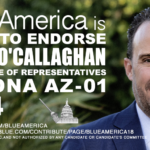Via Raw Story, some news that really isn't such a big deal. Third-party administrators are already a cash cow for the insurance industry, but my guess is that this contract will have a lot of built-in cost controls:
A little-noticed tidbit in Saturday's Washington Post is sure to raise eyebrows among liberal supporters of a gorvernment-run healthcare plan: the plan is likely to be administered by a private insurance company, the very companies that progressive activists are trying to unseat.
The public-option debate is frustrating some Democrats, who have come to believe that a government-run plan is neither as radical as its conservative critics have portrayed, nor as important as its liberal supporters contend. Any public plan is likely to have a relatively narrow scope, as it would be offered only to people who don't have access to coverage through an employer.
The public option would effectively be just another insurance plan offered on the open market. It would likely be administered by a private insurance provider, charging premiums and copayments like any other policy. In an early estimate of the House bill, the Congressional Budget Office forecast that fewer than 12 million people would buy insurance through the government plan.
The problem with insurance companies isn't the third-party administrators - they simply administer claims decisions on the basis of what the client pays for. (Although their administration fees are so often heavily padded, and the feds will have to watch them closely.) This is commonly done with so-called "self-insured" plans.
This is one of the reasons why it won't happen overnight. Someone's going to have to come up with the oversight structure.















